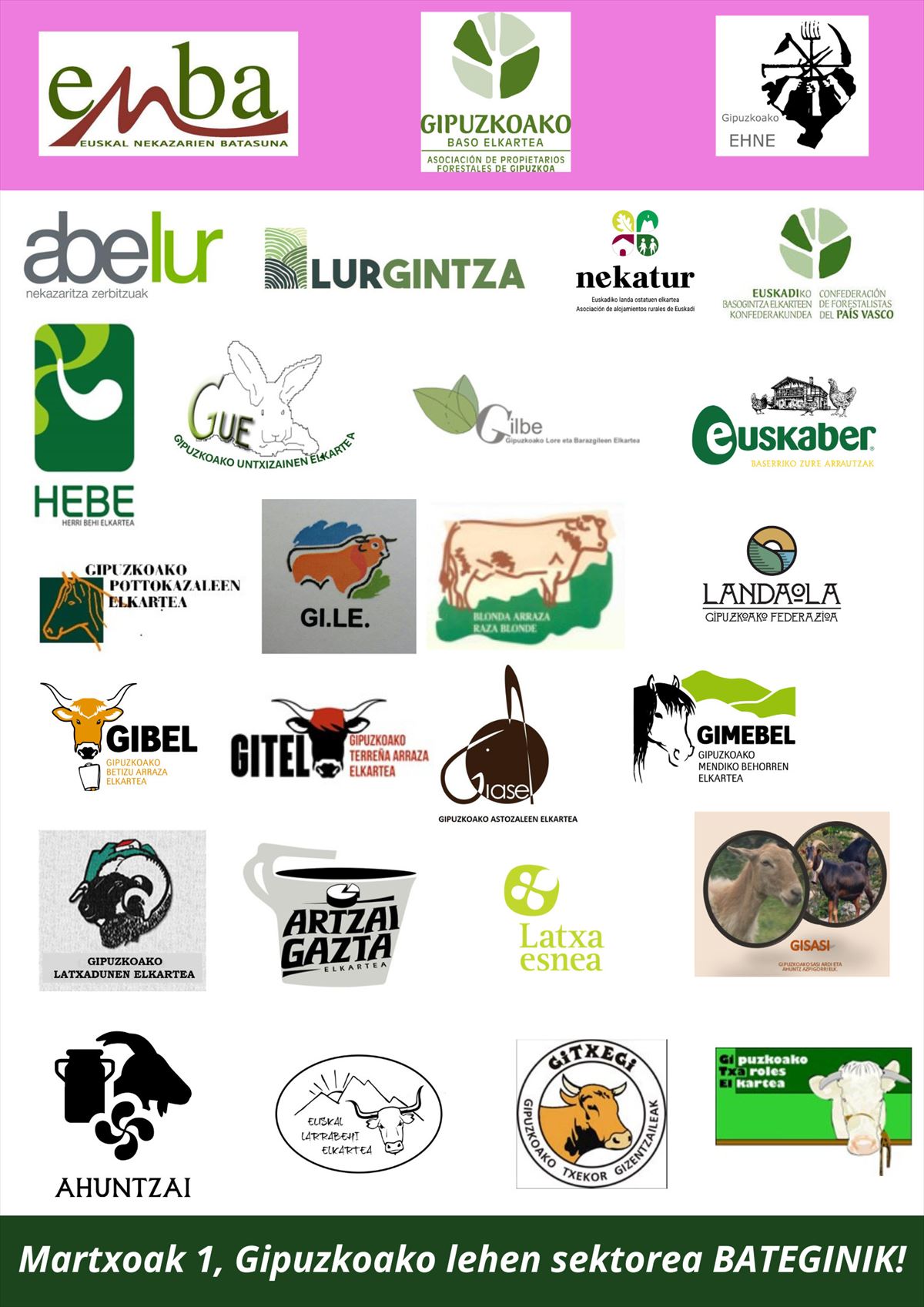38 associations, agents and companies joined the protest and traveled through the streets of San Sebastián with tractors and other vehicles to go to the General Assemblies to present their manifesto to the political parties.
The Gipuzkoa farmers today took their tractors to the General Meetings of the first major mobilization supported by the main agricultural organizations of the area EHNE and ENBAtogether with numerous associations, agents and companies from the sector.
On February 12, farmers in the area took to the streets with their tractors, but EHNE and ENBA announced that they would carry out an action. own calendar of protests, and today their demands were heard on the streets for the first time.
As they clarified in a manifesto: “we join many of the demands of the protests that have been carried out across Europe, but as we have already said: we must go beyond the problems caused by the common agricultural policy, or the European Free Trade Agreements, which we can take action on improve the daily lives of the Baserritarras from our countryour territory, and that is what we need to deepen. For this reason, we have repeatedly claimed our own discourse and the need for our own calendar, without focusing on the state-level mobilizations of February 6, which have mixed up too many things that have nothing to do with that day. per day and the needs of the Basque baserritarras”.
They left early in the morning three caravans with tractors from different points of the area who, after meeting in the shopping centers of Garbera (San Sebastián) and Urbil (Usurbil), and at the Petromiralles gas station in Andoain, went to San Sebastián to first explore the city center and then go to the headquarters of the General Meetings in Miramón. The caravan left at 8:30 am from Legorreta station and at 9:00 am from the Artzabal industrial estate in Tolosa, the Ubegun industrial estate in Aia-Orio and the Masti-Loidi industrial estate in Errenteria.
The first agricultural vehicles reached the capital San Sebastian after 11:30 am. The three columns come together in the General Assemblies, on the 12:30 pmwith a meeting and the reading of a manifesto by the organizers, who later went to meet the chairman of the boards of directors, Xabier Ezeizabarrenaand the representatives of the various Juntero groups to convey their demands.
The farmers explained in the statement that the reason why they attended the General Assemblies is that they are the ones who “have the duty to represent the citizens”: “Some because they govern and others because they are in the opposition, both in the municipal councils of Gipuzkoa, such as the Provincial Council of Gipuzkoa, the General Assemblies, the Basque Parliament or the Basque Government, it is everyone’s responsibility promoting and facilitating the activity of the primary sector, both in power and in opposition”.
Precisely, the basertarras have addressed themselves to the citizens, from whom they have also asked for “active commitment so that, on a daily basis, focus on the food and raw materials produced on our territory“.
As for the leaders, they have asked them to be ‘active’ in solving problems, not ‘in generating them’. In that sense, according to the manifesto, they are betting on a joint work with the Provincial Council, EUDEL and the Basque government “sustainable and effective”.
Streamline and facilitate administrative transactions These are some of the demands heard in all the first sector protests, and the ENBA and EHNE statement also hints at this, proposing the creation of working groups to “streamline, reduce and not repeat” these.
On the other hand, they asked for it restore the National Property Statutedo not place installations of great value on land renewable energy and measures against proliferation of wild boars and deeramong other things.
Despite all this, they have demanded leaders, officials and political representatives Give priority to the primary sector.
A total of 38 associations, agents and companies They joined this mobilization to denounce the situation the primary sector is experiencing and defend the viability of their farms.


Source: EITB
I’m Wayne Wickman, a professional journalist and author for Today Times Live. My specialty is covering global news and current events, offering readers a unique perspective on the world’s most pressing issues. I’m passionate about storytelling and helping people stay informed on the goings-on of our planet.



